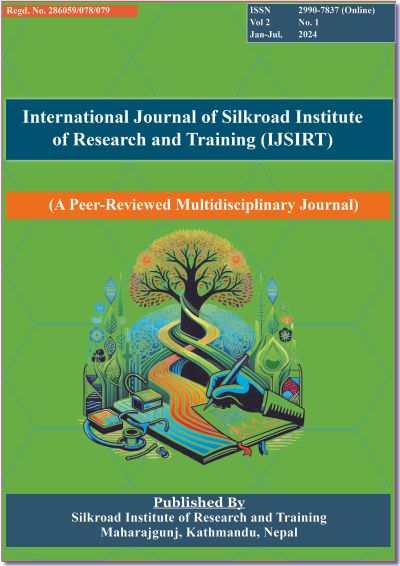Occupational Stress and Job Satisfaction among Nurses Working in a Tertiary Care Hospital
Keywords:
occupation stress; job satisfaction; nurses; hospitalAbstract
Background: Occupational stress and job dissatisfaction are prevalent issues among nurses employed in hospital settings.
Occupational stress manifests as both emotional and physical reactions stemming from a perceived imbalance between an
individual's priorities and responsibilities. Conversely, job satisfaction is a critical determinant of the efficiency and productivity
of human resources. This study aims to assess level of occupational stress and level of job satisfaction among nurses working
in tertiary care hospitals and to find out correlation between occupational stress and job satisfaction among nurses.
Method: Descriptive study design was used; study sample was 226 nurses selected by enumerative sampling technique.
The data was collected using self-administered questionnaire consisted of socio-demographic information, Modified
Expanded Nursing Stress Scale and Job Satisfaction Scale. The collected data was entered into SPSS version 26 and were
analyzed using descriptive and inferential statistics.
Result: More than half (58.45%) of the respondents reported a moderate level of stress. Similarly, more than half (52.7%)
of the respondents expressed satisfaction with their job. The study identified significant associations between age, marital
status, and number of children with the level of occupational stress among the respondents. However, no significant
correlation was found between occupational stress and job satisfaction.
Conclusion: Based on the findings, it can be concluded that a majority of the respondents are experiencing stress, while
more than half of the nurses are satisfied with their job. The most satisfying factors identified include the nature of the work
itself and the hospital environment in which they work.
Downloads
Downloads
Published
How to Cite
Issue
Section
License
Copyright (c) 2024 Rama Kumari Lamichhane, Bijaya Dhakal, Asha Thapa, Sumitra Parajuli

This work is licensed under a Creative Commons Attribution-ShareAlike 4.0 International License.
CC BY-SA: This license allows reusers to distribute, remix, adapt, and build upon the material in any medium or format, so long as attribution is given to the creator. The license allows for commercial use. If you remix, adapt, or build upon the material, you must license the modified material under identical terms.




